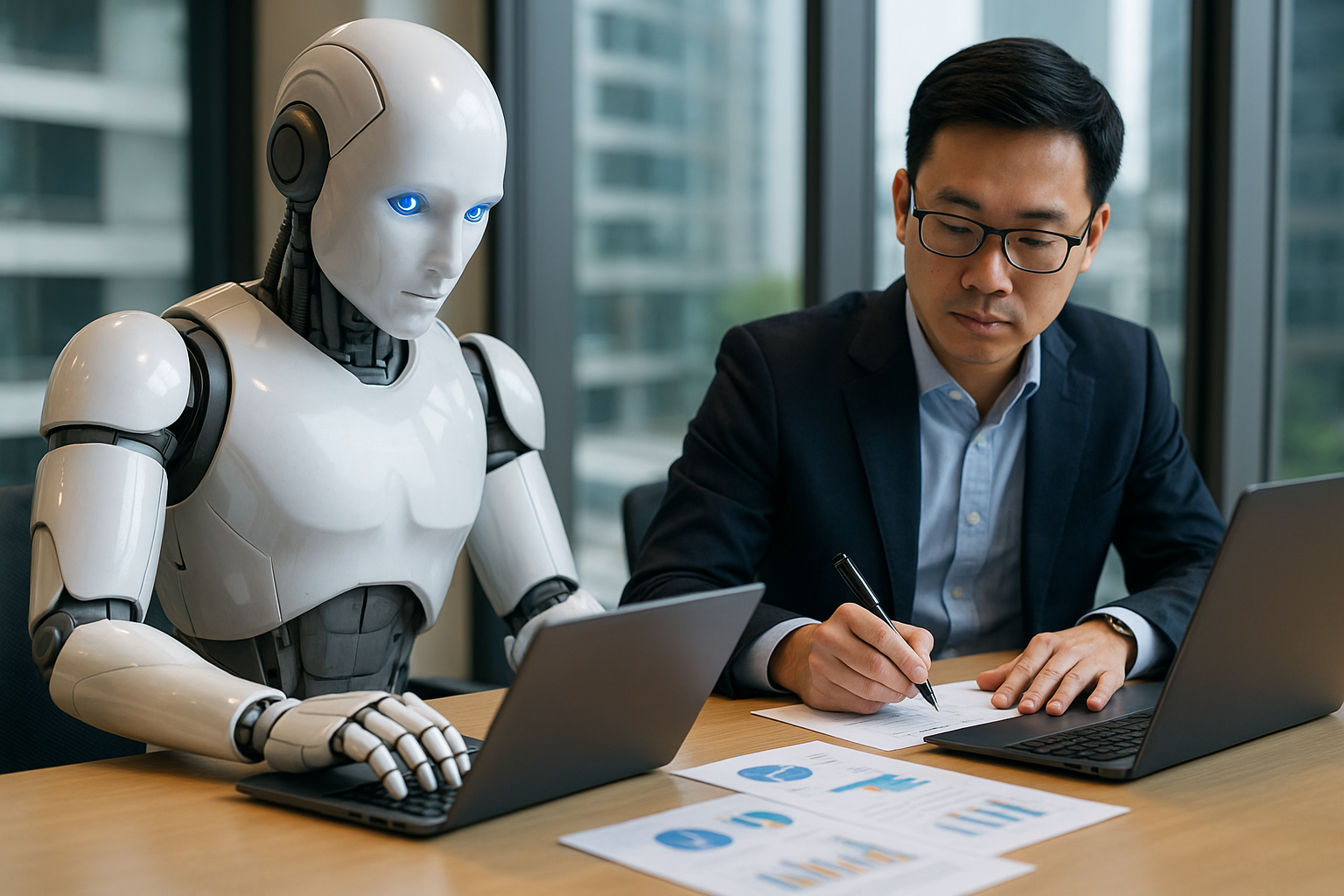AI powers next wave of sustainable business innovation
Firms deploying AI are seeing a marked increase in their ability to disrupt traditional markets with novel solutions. By using machine learning to predict market trends or generative AI to design new products, organizations are carving out competitive advantages that were previously unattainable. This acceleration of innovation is particularly evident in high-tech industries, where AI is streamlining research and development and reducing time-to-market cycles.

- Country:
- China
Artificial intelligence is redefining innovation strategies in Chinese enterprises, accelerating their journey toward sustainable growth and global competitiveness. A recent study published in Sustainability explores this dynamic in detail, offering a comprehensive view of how AI is driving transformative changes in the business landscape.
The research, “How Does Artificial Intelligence Application Enable Sustainable Breakthrough Innovation? Evidence from Chinese Enterprises,” analyzes panel data from Chinese A-share listed enterprises spanning 2011 to 2023. The study investigates how AI adoption fosters breakthrough innovation, the role of knowledge recombination in this process, and how market competition shapes outcomes. The findings provide valuable insights for businesses, policymakers, and industry leaders navigating the digital economy.
AI as a catalyst for breakthrough innovation
The study highlights that AI is a powerful enabler of sustainable breakthrough innovation across industries. Advanced AI tools, from deep learning and natural language processing to big data analytics, allow companies to integrate massive volumes of structured and unstructured data, enabling rapid analysis and smarter decision-making. This integration supports faster product development, more innovative business models, and optimized processes that enhance efficiency and drive sustainability.
Firms deploying AI are seeing a marked increase in their ability to disrupt traditional markets with novel solutions. By using machine learning to predict market trends or generative AI to design new products, organizations are carving out competitive advantages that were previously unattainable. This acceleration of innovation is particularly evident in high-tech industries, where AI is streamlining research and development and reducing time-to-market cycles.
The research underscores that AI’s role is not limited to operational gains. It actively reshapes organizational strategies by aligning technological capabilities with long-term sustainability objectives. By enabling smarter allocation of resources and more precise forecasting, AI supports enterprises in meeting both financial and environmental performance targets.
Knowledge recombination as the innovation engine
A central theme in the study is the mediating role of knowledge recombination. The researchers found that companies leveraging AI effectively are not only generating new insights but also transforming how knowledge is created, shared, and reused within their organizations.
Two dimensions of knowledge recombination were identified: creation and reuse. Through creation, companies integrate diverse knowledge sources, internal expertise, external partnerships, and big data, to produce innovative ideas that lead to breakthrough products or services. Reuse, on the other hand, involves repurposing existing organizational knowledge in innovative ways, enabling firms to accelerate project timelines and lower development costs while maintaining quality and innovation.
The study reveals that organizations embedding AI into their knowledge management systems are better positioned to innovate continuously. Cloud-based collaboration platforms, AI-driven analytics tools, and machine learning algorithms collectively foster a culture of agility and responsiveness. This alignment of AI and knowledge strategies supports sustainable innovation momentum, allowing firms to adapt quickly to market shifts and emerging opportunities.
Market competition as a catalyst and moderator
Market competition emerged as a significant moderator of the relationship between AI and breakthrough innovation. The analysis shows that in highly competitive markets, firms are more likely to leverage AI aggressively to generate unique and hard-to-replicate innovations. The pressure to outperform rivals fuels investments in AI-driven insights, accelerating the pace of innovation and reinforcing competitive advantages.
Conversely, in environments with moderate competition, firms tend to focus on incremental improvements. While they still benefit from AI-enhanced analytics and strategic insights, their innovation efforts are less radical and more focused on efficiency and gradual enhancements.
The research also uncovers notable variations across ownership structures and regions. State-owned enterprises (SOEs) demonstrate stronger capacity to mobilize resources for AI adoption, benefiting from policy support and access to capital. Meanwhile, firms in eastern China lead in AI-driven innovation due to advanced digital infrastructure, mature technological ecosystems, and greater exposure to global markets. Enterprises in central and western regions, while making progress, face infrastructural and skill-related constraints that slow their pace of transformation.
Strategic and policy implications
For enterprises, the study recommends integrating AI deeply into organizational processes and knowledge systems. Building robust data ecosystems, fostering cross-departmental collaboration, and cultivating a culture that values experimentation are essential steps for maximizing AI’s potential in driving breakthrough innovation.
For policymakers, the research highlights the importance of investing in digital infrastructure and supportive innovation ecosystems. By creating platforms for knowledge sharing and collaboration, governments can enhance the collective capacity of enterprises to adopt and integrate AI effectively. Regulatory frameworks should balance fostering innovation with ensuring data security and ethical AI use, enabling a sustainable and responsible digital transformation.
According to the study, maintaining a balanced competitive environment is critical. Excessive competition can strain resources and disrupt long-term innovation strategies, while insufficient competition can lead to stagnation. Strategic policies that promote healthy competition and incentivize innovation are key to sustaining the momentum of AI-driven transformation.
- FIRST PUBLISHED IN:
- Devdiscourse










